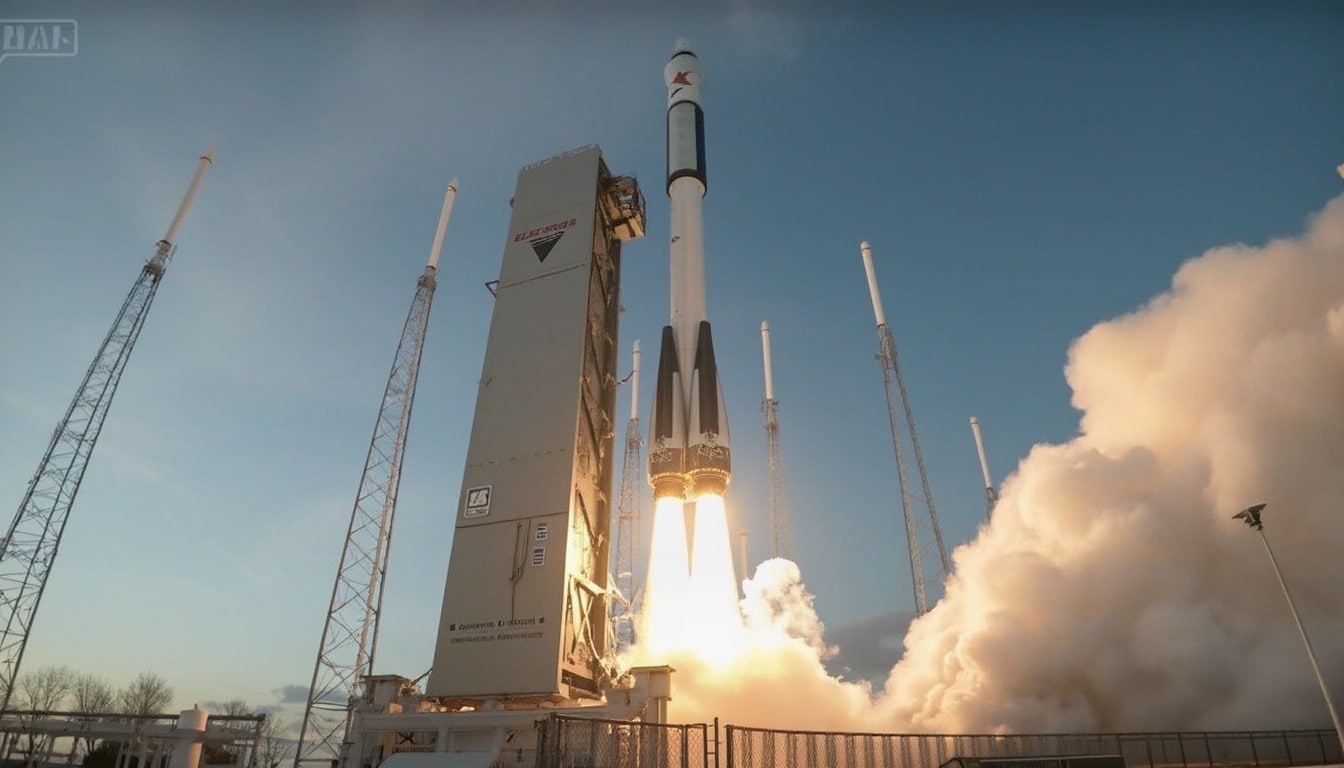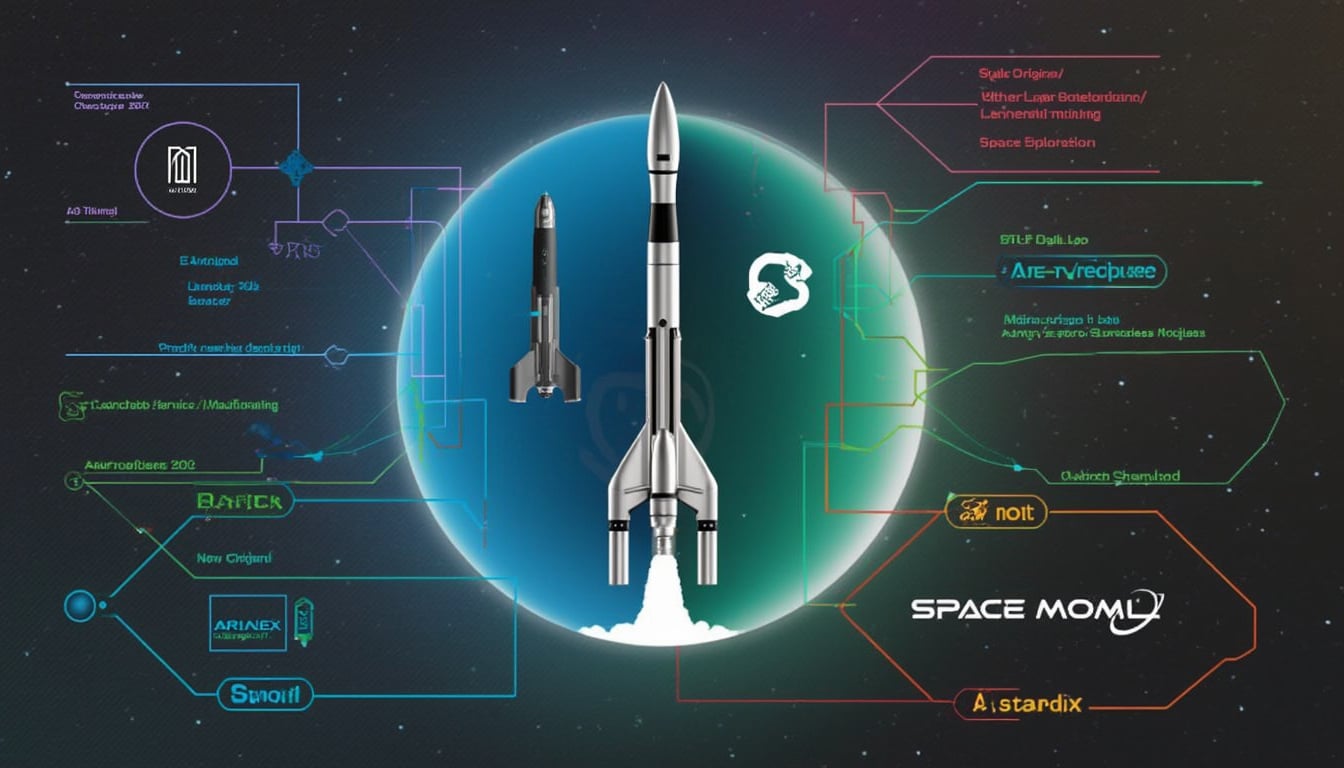As the world looks to the stars, the commercial space sector is evolving rapidly. Among the key players in this field, Rocket Lab stands out as a fierce competitor to SpaceX’s long-standing dominance. Founded in 2006 by Peter Beck, Rocket Lab has made significant strides in the small satellite launch market. With a commitment to innovation and a clear strategy, the company aims to carve out its niche within the competitive landscape of space exploration. Understanding this dynamic is essential for comprehending the future of space travel and satellite deployment.
Throughout this article, we will delve into Rocket Lab’s ambitious plans, its growth trajectory compared to SpaceX, and the broader implications for the space economy. Investors, space enthusiasts, and industry leaders alike will find valuable insights as we explore the intricacies of this fierce competition. Buckle up as we navigate the final frontier.
Rocket Lab’s Rise in the Space Launch Industry
Rocket Lab has carved out a unique position in the space launch industry. With its Electron rocket, the company focuses on small satellite deployments, a niche that has grown significantly in recent years. As demand for satellite launches increases, Rocket Lab found itself perfectly poised to take advantage of this trend.
Founded in 2006, the company made history with the successful launch of its Ātea-1 suborbital rocket, becoming the first private company in the Southern Hemisphere to reach space. This early success laid the groundwork for future achievements, proving that a determined team could compete on a global stage. With dedicated facilities in both New Zealand and the United States, Rocket Lab is on track to continue its mission of democratizing access to space.
Strategic Advantages
What sets Rocket Lab apart from its competitors? Several factors contribute to its growing visibility in the industry.
- Focused market strategy: Unlike SpaceX, which targets a wide range of satellite and cargo missions, Rocket Lab concentrates on small satellites, allowing for specialization and efficiency.
- Cost-effective solutions: The pricing model adopted by Rocket Lab, charging about $4.9 million per launch, presents a budget-friendly alternative to the more extensive services provided by its competitors.
- Streamlined operations: With a semi-automated launch process, Rocket Lab reduces the time and cost associated with traditional launches, enabling it to complete missions swiftly.
Challenges Ahead
Despite the positive momentum, Rocket Lab faces several challenges. The predominant force in the space launch sector, SpaceX, has demonstrated unparalleled operational capacity and economies of scale.
Additionally, becoming a leader in outer space often requires substantial funding for research and development. To remain competitive, Rocket Lab must attract investment and explore collaborations with larger entities. Key partnerships could enhance their offerings while driving down costs, further solidifying their market position.
In 2024 alone, Rocket Lab launched 16 rockets, significantly outpacing the 10 launches of the previous year. This growth reflects not only the company’s dedication to expanding its capabilities but also the increasing demand for commercial satellite launches. However, the looming presence of SpaceX, which completed 138 launches in the same period, brings to light the ongoing battle for control in an increasingly crowded marketplace.


The Competitive Landscape
Within the space sector, competition is fierce, particularly between Rocket Lab and SpaceX. Elon Musk’s brainchild dominates the launch market, maintaining a de facto monopoly on many missions due to its significant operational capacity and diversified service offerings.
SpaceX’s Falcon 9 has set a formidable standard for the industry, capable of launching large payloads at a competitive price. Rocket Lab, however, serves a distinct purpose, primarily targeting small payloads with its Electron rocket — a clear differentiation strategy.
The industry is witnessing the emergence of multiple players, further complicating the competitive terrain. Companies like Astra and Relativity Space are also vying for market share, signifying increased opportunities for innovation and growth.
Market Trends and Opportunities
As demand for satellite launches continues to rise, particularly for small-satellite constellations, Rocket Lab has positioned itself to take advantage of this trend. The commercial space sector is evolving rapidly, with many companies recognizing the necessity of agile launch services tailored to the specific needs of various clients.
The ability to launch frequently at a lower cost has made Rocket Lab a favorable option for small satellite operators. For instance, companies like Planet Labs, which rely on regular launches for updates to their earth observation satellites, see Rocket Lab as an essential partner.
Funding and Growth Prospects
Investment in the space sector has surged in recent years, largely driven by the increasing interest in satellite technology and its wide-ranging applications—from communications to climate monitoring. Rocket Lab’s stock has fluctuated, yet recent trends suggest a robust recovery fueled by investor confidence.
Through continuous innovation and expansion, the company projects further growth, aiming to increase its launch cadence and enhance its capabilities. By attracting strategic partnerships, Rocket Lab intends to fortify its positioning against larger competitors, underscoring the importance of thorough market analysis and forward-thinking strategies.
Securing funding, especially for research and development efforts, will be critical as Rocket Lab works to enhance its technological infrastructure and broaden its mission scope. With ongoing collaborations and investment opportunities, the prospect of sustainable growth remains within reach.

Technological Innovations Driving Rocket Lab
Technological innovation is at the core of Rocket Lab’s strategy. As demands for space access expand, the need for reliable and cost-effective launch vehicles becomes ever more apparent. The Electron rocket exemplifies the company’s dedication to cutting-edge technology paired with optimized design.
One significant innovation is the implementation of 3D printing for rocket components, which streamlines production and enhances speed to market. Rocket Lab has invested heavily in additive manufacturing, ensuring that their rockets can be built faster and more efficiently compared to traditional methods.
Electron Rocket Specifications
Rocket Lab’s Electron rocket is one of the most efficient vehicles in its class, designed for rapid turnarounds and quick launches. The lightweight composite structure and rapid assembly processes make it ideal for the small satellite market.
The rocket’s capabilities allow for dedicated payloads with a maximum capacity of 150 kg to low Earth orbit. This strategic focus on smaller payloads allows Rocket Lab to cater to various customers requiring frequent launches, thereby enhancing growth potential in the small satellite industry.
Future Technologies on the Horizon
The development of the Neutron rocket symbolizes Rocket Lab’s ambitions to further tap into larger payload markets. This next-generation vehicle aims to fetch larger payloads and compete directly with SpaceX’s Falcon 9.
Aiming to reduce launch costs and increase launch frequency, the Neutron rocket is designed with reusability in mind, following the principles that have made SpaceX’s operations so effective. The success of this vehicle could help Rocket Lab diversify its offerings, expand its market reach, and present even stronger competition to established players in the industry.

The Future of Rocket Lab
Rocket Lab stands on the brink of significant advancements in the space launch sector. The ongoing developments and innovations undertaken signal a rapid evolution within the company. Investors’ outlook for Rocket Lab remains positive, with an estimated growth index suggesting a favorable trajectory in the coming years.
Emphasizing the company’s vision for the upcoming years, there is a robust commitment to enhancing launch capabilities and expanding services. As competition continues to heat up, maintaining focus on innovation will be paramount in ensuring Rocket Lab remains an indispensable player in the space launch domain.
Building Alliances and Partnerships
Forging strategic alliances with major players in technology and aerospace offers Rocket Lab the opportunity to leverage resources and expertise. Through partnerships, the company can strengthen its offerings, ensuring its services stay relevant and competitive.
Rocket Lab has actively sought opportunities to collaborate with universities and research institutions to foster innovations that will benefit the broader industry.
Continued Investment in Technology
Investment in emerging technologies will guide Rocket Lab through its growth phases. In an industry reliant on innovation for success, staying ahead of technological trends is essential to maintaining a competitive edge.
Furthermore, continued investment in infrastructure and operational capabilities will help ensure Rocket Lab can meet growing client demands with efficiency and reliability. As the space sector continues to grow, the need for reliable launch services will increasingly dictate business success. Consequently, Rocket Lab’s future will depend on navigating these demands with agility and foresight.





Leave a Reply